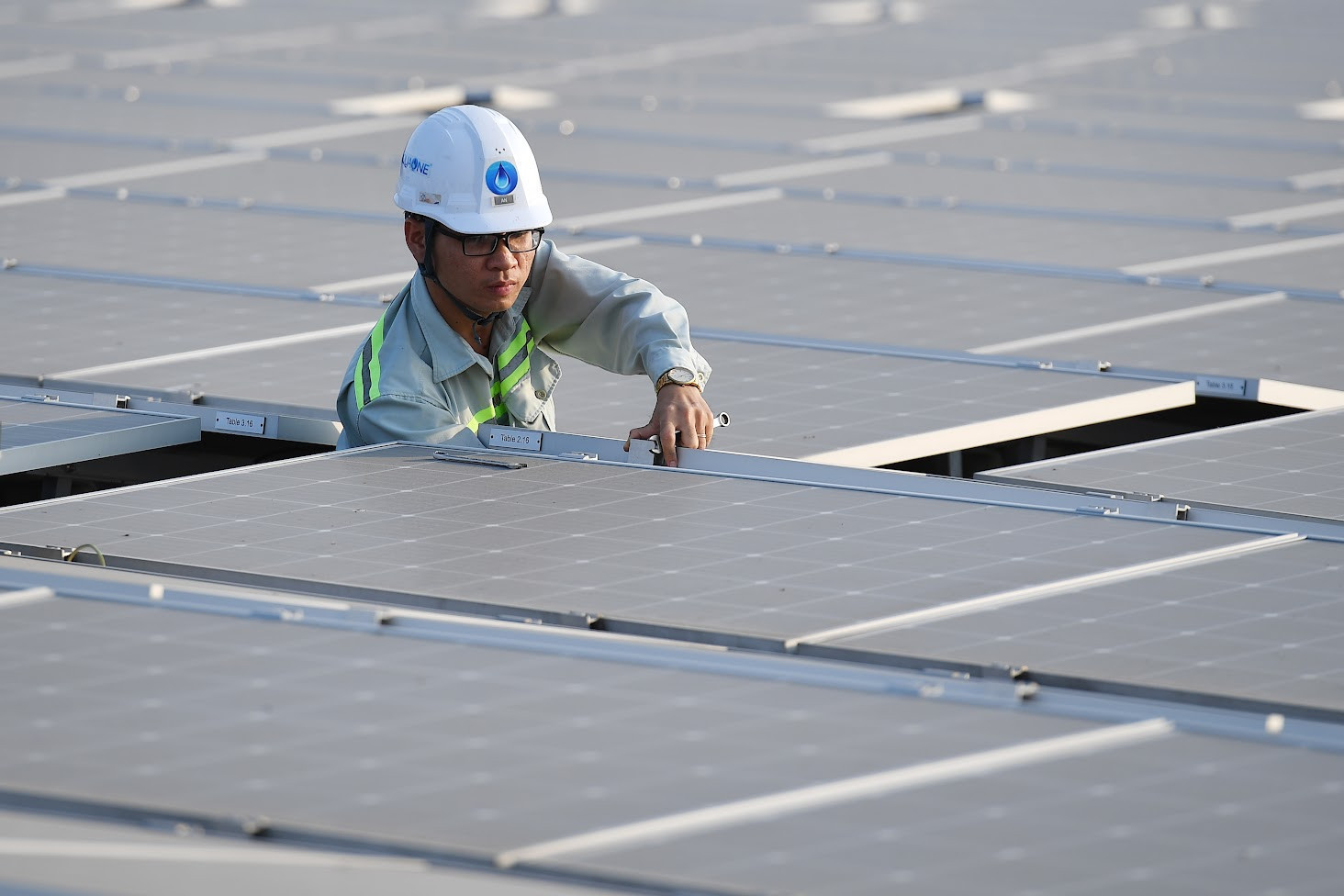
The debate on whether to buy electricity from household-developed rooftop solar power systems is still ongoing.
MOIT, the agency compiling a government decree on rooftop solar power, believes that households will develop rooftop solar power systems to bring benefits to themselves, not to other people or the government. People will spend money to buy amenities and conveniences for themselves, not to do business for profit.
The principle pursued by the ministry when drafting the decree was to have no sales to the national grid and no sales to individuals or institutions.
Experts believe that if rooftop solar power system developers cannot sell excess electricity, Vietnam won’t be able to develop clean power sources.
The draft
MOIT has sent the draft to the Ministry of Justice (MOJ) for opinions before it submits the document to the government for approval.
The draft decree allows businesses developing rooftop solar power systems to connect with the national grid (to ensure stable electricity supply, i.e., the systems’ owners can use electricity from the national grid if the electricity output of the rooftop solar power systems is not high enough to satisfy households’ demand), but they are not allowed to sell electricity to the national grid and to other organizations or individuals.
Individuals and institutions which install rooftop solar power systems need to calculate their electricity demand to install the systems with a reasonable capacity and minimize excess electricity capacity, which they will have to transmit to the national grid.
The government respects individuals and organizations’ choices on whether to transmit excess electricity to the national grid.
MOIT emphasized that solar power is an unstable source of power. The operation of solar power depends on weather conditions. The regular changes of weather, which lead to power supply changes, may interfere with the power grid. The unstable electricity quality may harm electrical equipment used at homes, offices and industrial workshops.
Vietnam’s power transmission network remains weak, though great improvements have been made recently. Vietnam’s renewable power accounts for 33 percent of total power capacity. And if counting hydropower as some other countries do, the figure would be 54 percent, a high figure for developing countries like Vietnam, which may pose danger to the whole system and lead to higher production costs.
However, the state still encourages people and enterprises to install rooftop solar power in order to help them save operation costs and ease their financial burden, not to encourage them to sell electricity to the state.
MOIT also cited the eighth national power development plan (Plan 8) as saying that rooftop solar power serves use on the spot, and is not for sale to the national grid.
Individuals and organizations which install rooftop solar power have to buy the same equipment, except for the equipment that converts direct current into alternating current (there are two products, including on-grid and off-grid inverters)
Also according to MOIT, if individuals and organizations want equipment to connect their rooftop systems with the national grid, they can buy on-grid inverters, which are much cheaper. If they want to store electricity, they need to buy off-grid inverters which are more expensive.
They also have to spend additional money on an electricity storage unit. The fact that rooftop solar power systems can discharge excess electricity to the national grid should be seen as a favor.
Seeking National Assembly opinions
MOIT has pointed out existing problems which can be solved only by the National Assembly.
The Law on Electricity doesn’t consist of any regulation on "self-production, self-sufficient" electricity. It is unclear if rooftop solar power systems can connect to the national grid, and if they can sell excess electricity to other individuals or organizations.
MOIT is also drafting the Law on Electricity (amended). If the decree is promulgated before the NA approves the amended Law on Electricity, the decree will no longer be valid after the amended law takes effect. Therefore, MOIT has asked the government to report the problem to the NA Standing Committee.
The government is encouraging individuals and organizations to develop rooftop solar power systems to help residents' control their own power supply, but there is no regulation on encouraging this type of electricity in association with electricity storage units.
Luong Bang